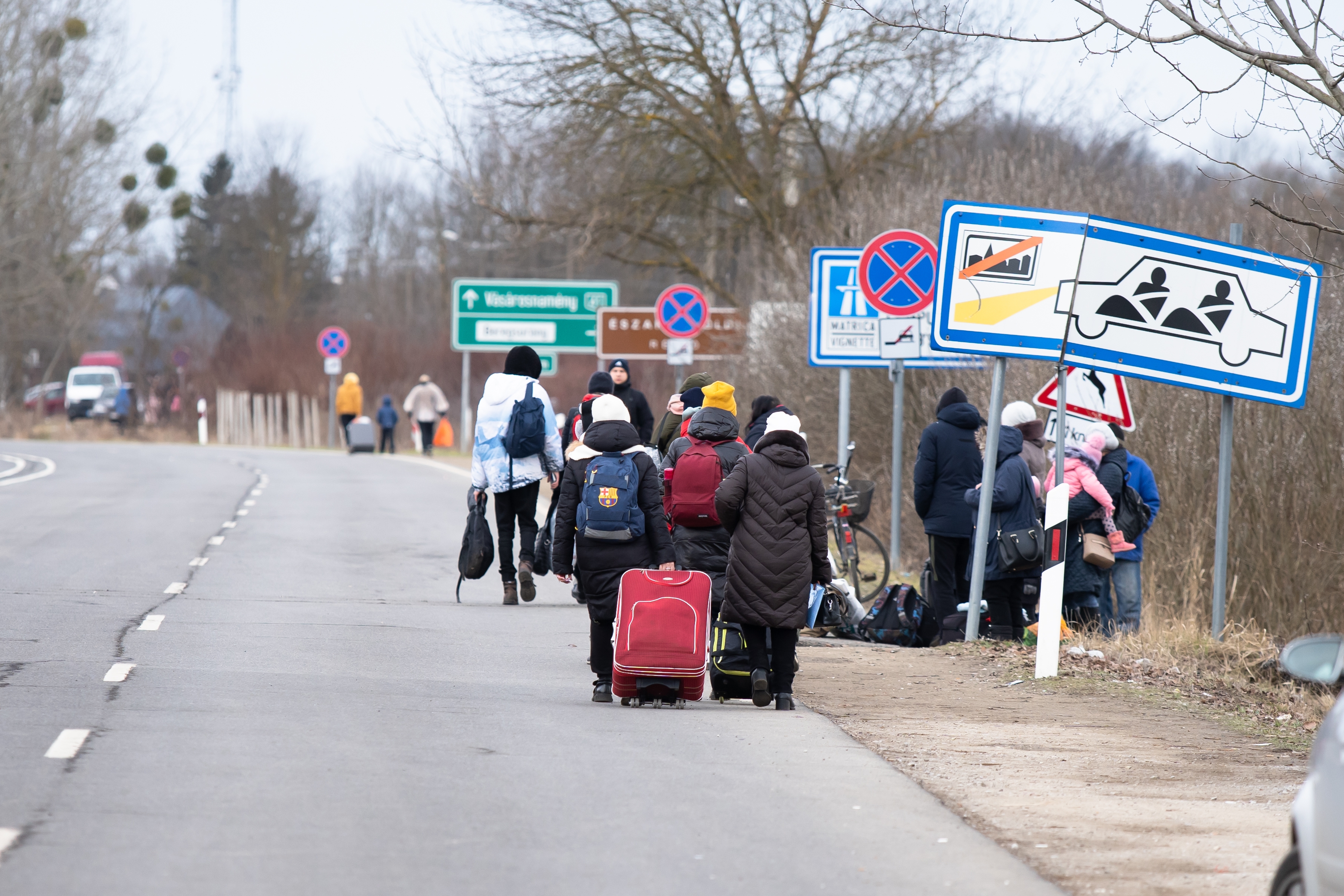The widespread destruction wrought by Russia across Ukraine is astonishing, with whole towns flattened and large swaths of cities sacked. Special correspondent Simon Ostrovsky and videographer Yegor Troyanovsky found twin towns where the visible damage was more limited, but the heartache and anger are still palpable.
Read the Full Transcript
Judy Woodruff: The widespread destruction wrought by Russia across Ukraine is astonishing, whole towns flattened, large swathes of cities sacked.
Special correspondent Simon Ostrovsky and videographer Yegor Troyanovsky found twin towns where the visible damage was more limited, but the heartache and anger are still palpable.
Simon Ostrovsky: In the village of Staryi Bykiv, two hours east of Kyiv, a woman and man work to fix a fence.
I ask, her, what happened here?
"You live your life, do everything to have a comfortable retirement, and then, the Russian world comes to liberate you," she smirks.
Tetyana Plysko tells me Russian soldiers occupied and ransacked their cottage after she and her husband fled the village when fighting began as the Russian columns advanced on the Ukrainian capital in February.
"They shot out the locks with a machine gun. They took everything," she tells me, "down to the sheets from the bed and the tools from the garage." The clothes on her husband's back are now the only garments he has left.
"What kind of mothers bore them to raise such scumbags?" At least, she says, she got away with her life. Six village men were not so lucky. Their bodies were found where they were executed by an abandoned building across the street.
Here in the village of Staryi Bykiv, it almost looks like the war never touched this place. Most of the houses are actually in pretty good condition and weren't hit by shelling. But when you start talking to the local residents, that's when you find out what the Russian soldiers were up to while they were occupying this area. And it paints a completely different picture.
We go to search for the family of some of the men who were killed to find out what happened. A few streets over, we are greeted by Lesya Nyzhnyk.
"All I have left are memories," she tells me. Her husband and his uncle were taken by a group of Russian soldiers and executed just as the force swept through the town.
"They were cut. Bohdan was stabbed in the heart and his ribs were broken. My husband's throat was slit. I would give anything for them to be alive."
Lesya tells me she blames herself, because she didn't beg hard enough for their lives while the men were still alive. No one knows why they were killed. They had no links to the military and had left the city to weather the war in their home village. It would prove to be a catastrophic miscalculation.
Viktoria Vovk, Staryi Bykiv Resident (through translator): Bohdan's hands were so white and his nails were just a little bit blue. His T-shirt was clean, as if he had just put it on. His pants were clean. After the exhumation, that's when they told us they had been knifed.
Simon Ostrovsky: Across a blown out bridge in Novyi Bykiv, Staryi Bykiv's sister city, we arrive at the local community center. Russian anti-aircraft units used it as their base and their prison.
Lyudmyla Kiriyenko shows us the cellar in an adjacent boiler room that was used to hold Ukrainian detainees. As many as 20 people were packed into this crawlspace at one point. After the Russians left, three of their bodies were found sprawled in the cemetery next door. A total of 13 people were killed in Staryi and Novyi Bykiv. Another is missing.
The community center itself is ransacked. The soldiers spray-painted the words "Glory to Russia" on a wall panel, below it, a cross associated with the white power movement. Another inscription decorates the stairwell: "We will feed our children with the bones of your people."
Lyudmyla's daughter, Yulia, takes us into her nail salon on the second floor.
"This was my business," she tells me. "I built it with my own sweat and blood. Now look at it. The cutters, the nozzles are gone, most of the nail Polish, nail clippers gone, the lamp gone. This was a pogrom, simply a pogrom. This is what we managed to salvage."
What do all these men from the Russian army want with a bunch of nail salon equipment?
"There's a tapped phone conversation that was put online where a guy says: 'There are manicure sets here. Should I take them? I will bring them.' When I was listening to it I thought to myself, he was in my place, called his wife, and told her he would take it. He probably did. Maybe he didn't make it. Maybe he's out there's somewhere. No one knows. I hope he is lying out there somewhere."
For the "PBS NewsHour," I am Simon Ostrovsky in Staryi Bykiv.
Judy Woodruff: Just unbelievable.
The "NewsHour"'s coverage of the war in Ukraine is supported in partnership with the Pulitzer Center.








